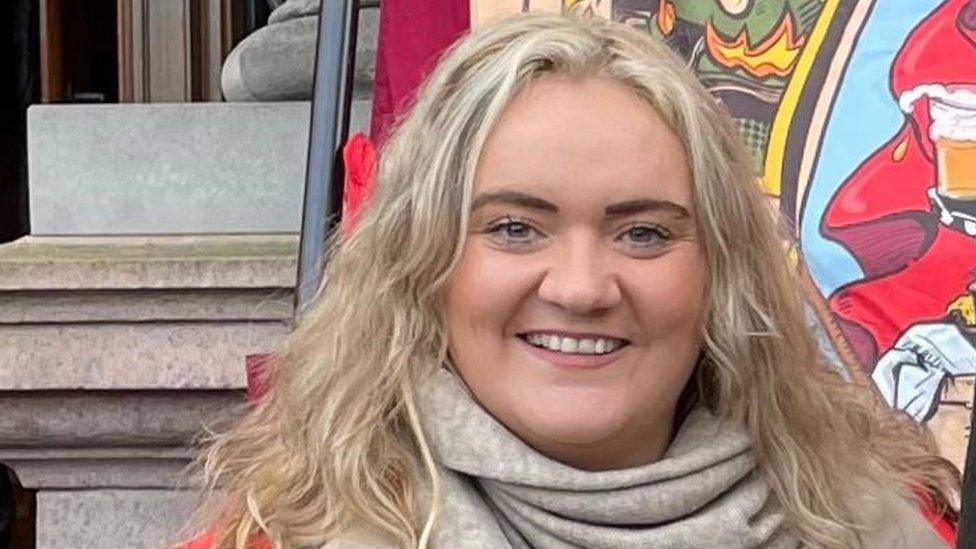The big challenges of having a night out in Scotland
- Published
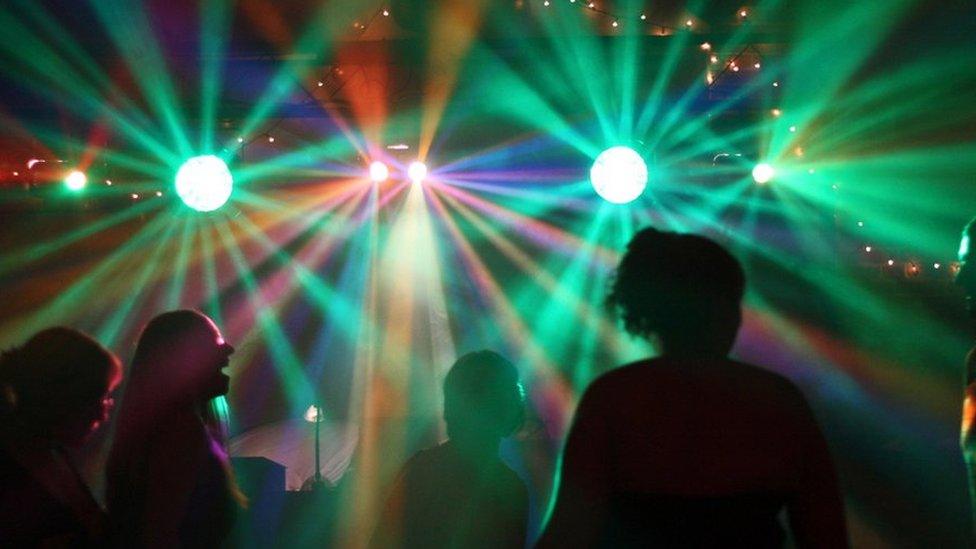
This ought to be one of the busiest weekends of the year for festive revelries - for workplace colleagues, sports clubs, friends and families to go out at night.
After two years where Covid restrictions killed off the party spirit, there's a lot of catching up to do.
But the night-time industry - where people serve the turkey with trimmings, plus mixing cocktails and pulling pints - faces three serious problems.
One is the cost of living and the lack of spare cash people have to spend in restaurants, bars and clubs.
Another is the shortage of available staff, with pay rising in the hospitality sector faster than others. That means some are having to limit customer numbers.
Then there is the difficulty in getting home for customers and staff - because many towns lack taxi capacity, buses are less reliable and trains are cancelled when there is strike action.
That transport problem has been made far greater by the fall in the number of taxi drivers, or at least the number willing to work at night.
It is hard to get numbers or to measure unmet demand, but one indication comes from Edinburgh, where a recent study of the trade showed that private hire licences are down by nearly a fifth since 2020.

'I'd rather not venture into town'
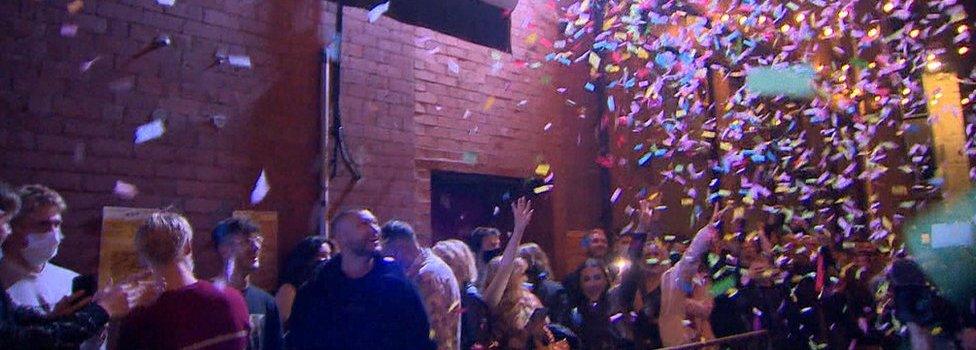
"It's very hard to get a taxi home from the town," says Jenna from Renfrewshire, out to the theatre in Glasgow. "Usually, I'd rather not venture into town".
Her partner Jack recalls one cab driver who agreed to take them back to Paisley, but he turned the meter off and said the fare would be double the usual rate. If they didn't like that, he would quickly find someone else at the taxi rank.
Masha is a music student in the city and a refugee from war in Ukraine. If she's on a night out, she leaves by midnight to catch the last bus, because she cannot rely on getting a cab, and can't afford taking them too often.
Some choose to book Uber cars, where prices vary and high demand makes them surge. A Glasgow University film student, Katy, says: "Some students aren't going on nights out any more, either because they can't get home, or because they can't afford the Uber".

For those whose night out go past the time of the last train or bus, taxis are a vital part of supporting the night-time economy.
The number of licences has held up in many council areas. But that does not mean those vehicles and the drivers are available when people are looking to hire them. The numbers suggest that fewer taxis are being shared between drivers, so they are more often parked overnight.
Through the pandemic, when taxis were forced off the road, many drivers were recruited into other fast-expanding driving jobs, such as the delivery of supermarket groceries.
These are jobs with more agreeable hours and fewer stroppy, drunk customers.
With a high average age in the taxi trade of around 58, the break from work was the cue for others to retire.
And facing large bills to comply with Low Emission Zones in city centres, the Scottish Taxi Federation is warning that next summer could bring a further drop in the number of urban taxis for hire.
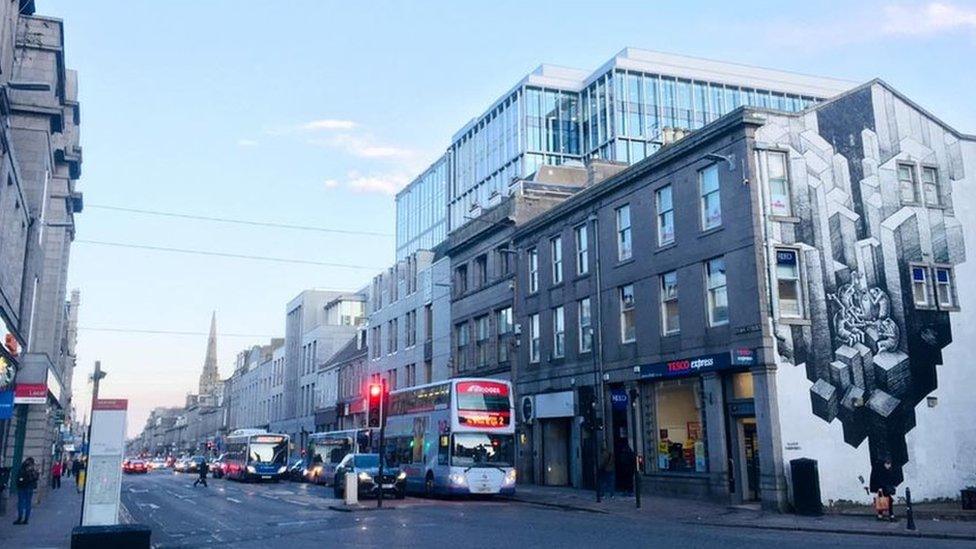
Businesses in Aberdeen's city centre are trying a number of initiatives to coax revellers on to more nights out
For the night-time economy, the festive recovery is lacking much bounce.
Colin Wilkinson, managing director of the Scottish Licensed Trade Association, says: "We were looking forward to having a bumper season. It's a very important time for the hospitality sector. For many, 30% of their turnover is gained during the run-up to Christmas and New Year.
"But with the cost of living, the lack of taxis, and higher business costs, it's a very difficult time for the industry.
"And in some businesses, because of the shortage of staff, they're having to restrict the number of people in their premises."
Gavin Stevenson, of the Night-time Industries Association, says: "Across the trade, everyone's feeling the impact of the wider current crisis. Our costs are through the roof, and consumers have less to spend.
"Public transport and taxis is a real issue in markets across Scotland. There are taxi shortages, but buses have been unreliable through much of the year, and train strikes are on some of the key trading dates for the night-time economy.
"We're seeing Christmas bookings as much as 30% below where they were expected to be."
'Build the economy up again'
Mary Martin runs several late-night venues in Aberdeen - the Ivy Lodge, Malones, the Craftsman and the Douglas Hotel, and she sees people heading home earlier than usual, to get the last bus.
The usual clientele are "struggling to get taxis into the city, so they're staying away. They're staying in their villages and towns, which is great. But we desperately need more business into the city centre".
In Aberdeen city centre, the Business Improvement District has struck a deal with the council and Stagecoach to run late, free bus travel at the weekend to stimulate more business.
Adrian Watson, managing director of the project, says the trial run is aimed at city people and at the hinterland in Aberdeenshire and Moray "to build the economy up again - we lost that economy since Covid."
There is less sign of co-operation in Glasgow, however.
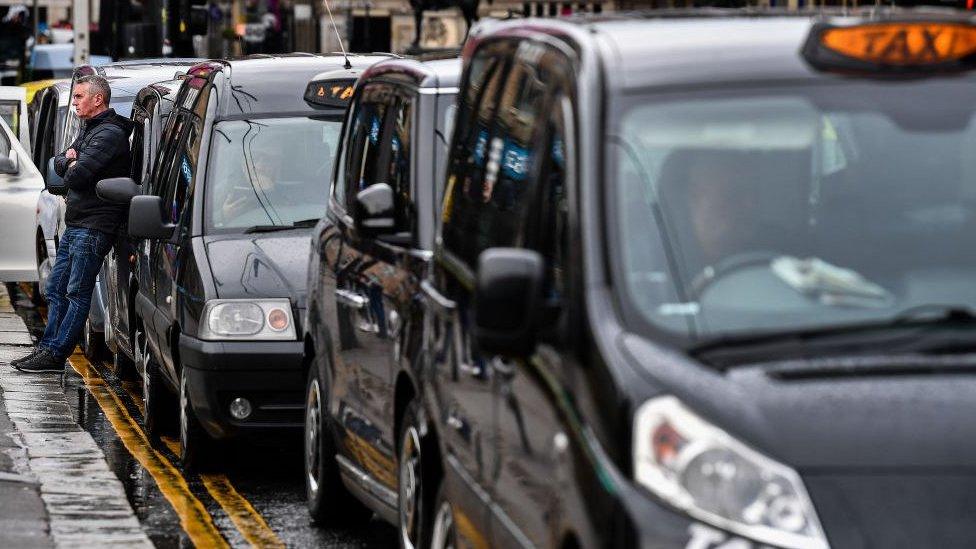
The main black cabs co-operative, Glasgow Taxis, is encouraging more people into the trade, saying it remains a "fantastic way to make a good living", even if it means spreading earnings more widely.
But the firm blames Glasgow City Council for putting too many hurdles in the way of new recruits.
To become a licensed driver in the city, you have to go through a course with nine tests, and do the 'topographical test' of your knowledge of streets, routes and common destinations.
Dougie McPherson, chairman of Glasgow Taxis, says safety should not be compromised, but it is unnecessary to have these hurdles.
"As a company, we are absolutely conscious of the role we play in getting people in Glasgow home, and looking after the safety of these people".
The cabbie, who is also vice-chairman of the Scottish Taxi Federation, says the challenge exists around the country, and in other countries, and that demand for city cabs is raised further because suburban councils have lost more drivers.
He adds that waiting for taxis at peak times is inevitable. A taxi fleet that can handle peak times with ease is going to be too big through much of the week for drivers to make a living.
The council's response is that it prioritises safety and quality of service, and while there was some discussion of cutting back on tests, that failed to reach agreement across the trade.
Related topics
- Published6 December 2022
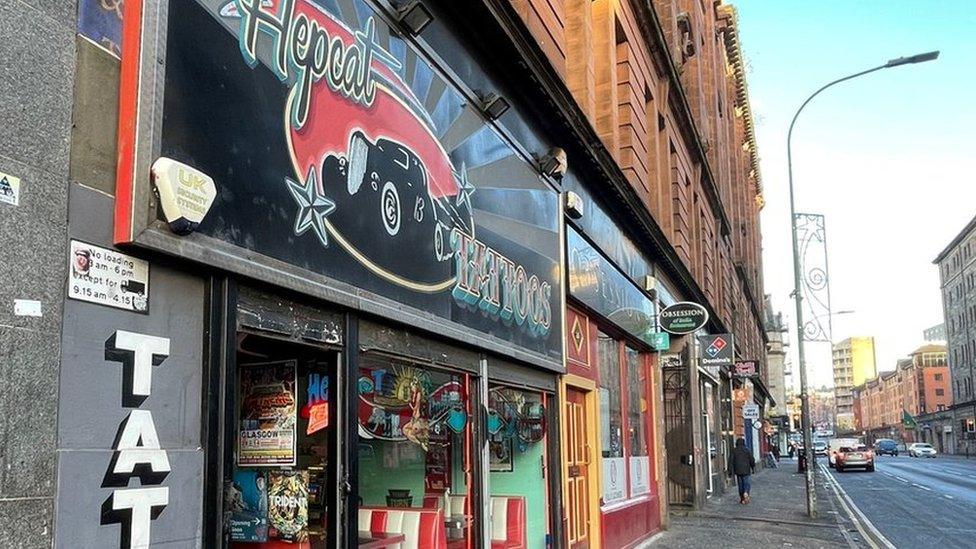
- Published9 December 2022
